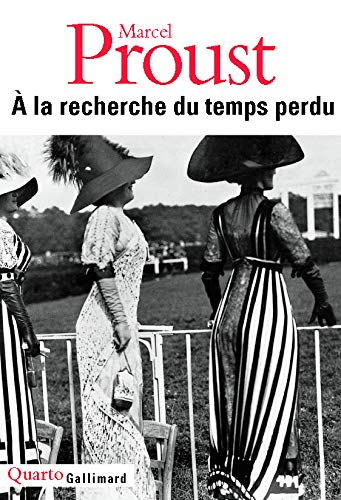People in their late 60s and older are generally avoiding contact with grandchildren these days, but the Emerging Artist and I are currently on grand-duty a couple of days a week, at least until the little one is cough-free and can go back to her childcare centre without fear of infecting anyone. (Note to any Covidgilantes reading this: We’re confident that her cough isn’t Covid-19, because we caught it from her and have tested negative.)
One of the many pleasures of grand-parenting this week has been renewing acquaintance with some much loved books, and encountering new (to us) variations on others. Here goes, with two Lynley Dodd books and three Allan Ahlbergs.
Janet and Allan Ahlberg, Burglar Bill (William Heinemann 1977)
Burglar Bill’s refrain ‘I’ll have that!’ became part of our family’s conversation. There’s something wonderful about the way he climbs in through windows and puts anything from a toothbrush to a can of beans into his sack. Spoiler alert: he takes home a box he finds outside a house, and discovers a baby inside it. Much merriment ensues as he tries to deal with the baby’s unstoppable crying.
It all turns out well (even bigger spoiler alert) when Burglar Bill is burgled by Burglar Betty who turns out to be the baby’s mother, both burglars decide to reform and end up marrying. But secretly we all just put up with the happy ending so we can have that wicked stealing in the first half. It may be a bit old for Ruby just yet, but she asks for it on repeat anyhow
Janet and Allan Ahlberg, Mrs Wobble the Waitress (Puffin 1980)
I have Mrs Wobble the Waitress on order, but I wanted to mention it here because it was also a big hit with out young ones 30 or more years ago. It’s part of Allan Ahlberg’s Happy Families series – 20 books in all, many (most?) of them illustrated by his equally brilliant wife Janet Ahlberg. I don’t know if the Ahlbergs had the opening lines of Anna Karenina in mind when they named the series, but these happy families are definitely not all alike.
This book begins with a wonderfully inept adult – Mrs Wobble – whose clumsiness leads to her being fired from her job as a waiter. The family come to the rescue, and it all turns out well, but I confess that what has stayed in my mind is the book’s final line After the wobble family have set up their own successful restaurant, there’s an impending disaster: ‘Mrs wobble wobbled.’
Allan Ahlberg and Joe Wright, Mrs Plug the Plumber (1980)
Mrs Plug the Plumber competes with Where the Wild Things for having the most neural pathways laid down in my brain. I read, ‘If a plumber was needed in the town, the people said, “Send for Mrs Plug!”‘ and I’m away. Mrs Plug is the mover and shaker. Mr Plug is the plumber’s mate, and Miss Plug and Master Plug are the plumber’s babies. Terrible things happen, and Mrs Plug rises to the occasion every time. Joe Wright’ illustrations, especially of the storm at sea, are brilliant, and the incantatory text is superb. Ruby loves this one, even including the somewhat scatological punchline. One small but significant pleasure for me is the appearance of Burglar Bill’s catchphrase, ‘I’ll have that’ in the scen where Mrs Plug turns the tables on a robber.
Lynley Dodd, Hairy Maclary’s Rumpus at the Vet (1989)
The first Hairy Maclary book, Hairy Maclary from Donaldson’s Dairy was published in 1983. According to Wikipedia the most recent, Scarface Claw – Hold Tight, appeared in 2017. Roughly 20 books in 35 years and as far as I know Lynley Dodd is still going strong and so are her gang of bouncily rhyming dogs and other animals.
Ruby has at least half the Hairy Maclary and Friends books. These are two of the four or five I enjoyed with her this week. Atypically, Hairy Maclary doesn’t have a starring role in this one: a cockatoo bites his tail in the vet’s waiting room, and there’s a chain reaction of disturbed animals: the dog, mice, budgerigars, kittens, a goat, an overwhelmed vet with her legs in the air. What more could anyone want? (Well, you could want the fabulously scary Scarface Claw to be lurking on the sidelines, an innocent bystander – and if you wanted that you wouldn’t be disappointed.)
Lynley Dodd, Hairy Maclary, Shoo (2009)
Hairy is centre stage in this one. It begins and ends with him playing with his friends, whose names (Bottomly Potts all covered in spots, and so on) have rung like a litany in some of the earlier books. But soon he jumps into a delivery van and is driven off in it. When poor Hairy Maclary jumps out of the van he is lost and every human he meets shoos him off. The lost dog’s panic is wonderfully rendered as comedy, but like all the best comedy the dark emotion isn’t completely extinguished. So the relief when he is found is huge.
Linley Dodd is a Dame Companion of the New Zealand Order of Merit. For having for so many decades paired evergreen, lively rhyming verse with precisely and lovingly portrayed dog behaviour, she richly deserves any honours she receives


















